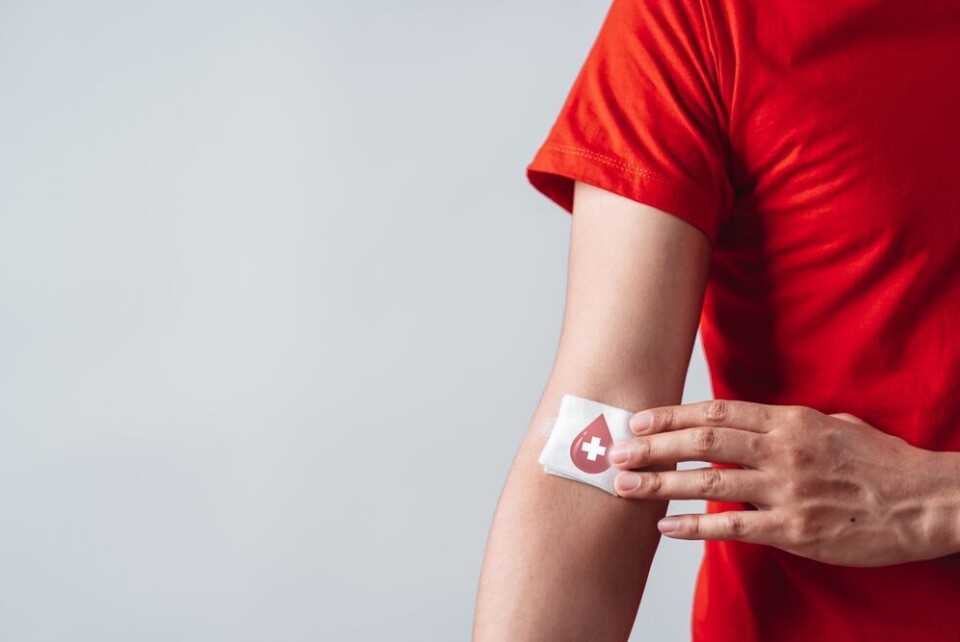-
Transavia to replace Air France for Nice-Orly flights
Up to eight return journeys a day to be offered by the budget carrier
-
Is this the end of free mountain rescue in France?
A new report says that charging for services is ‘legitimate and necessary’
-
How France’s new food strategy aims to change the national diet
The plan outlines new goals for meat consumption
Call for people with rare blood types to become donors in France
Hundreds of thousands of people do not realise they have this blood and can help, say doctors

Doctors in France are calling for people with rare blood types to donate more blood, and seeking to raise awareness about the importance of donating, especially if you are in the 1% with a very rare type.
The main blood group categories are A, B, AB, O, and rhesus positive or negative.
However, there are also 390 different blood markers, meaning that in reality, there are actually 390 different types of blood. Of these, 250 are considered to be rare. And of these, some people have a type found just 1% of the time.
Rare blood from one of the less common blood groups is the blood that can save lives, said Professor Jacques Chiaroni, haematologist and director of the Etablissement Français du Sang (EFS), to FranceInter.
A blood type is considered to be rare if fewer than four people in 1,000 have it.
Rare blood awareness week
The EFS has launched its new rare blood awareness week campaign to shed light on the issue, running from January 29 to February 4.
The week is aiming to highlight that “hundreds of thousands of French people are carriers [of rare blood] without knowing it”.
He said that “between 13,000 and 15,000 people” have already been identified and are on a register for very rare types, but there are hundreds of thousands more people who could help. “In France, potentially, there are almost a million people who could be carriers of these blood groups,” he said.
He admitted that France is “one of the richest banks” of blood as a country, with almost “8,500 frozen bags”, he said. France is “regularly asked by our European colleagues to export blood to the United States, Canada, Australia, and Japan” said Thierry Peyrard, director for rare blood at the EFS.
Frozen bags can be kept for up to 30 years, as opposed to “a conventional blood bag, which can be used for 42 days”, said Prof Jacques Chiaroni.
International blood
However, France still “doesn’t have the full range of blood groups that exist”, he said, and the country still sometimes needs to ask foreign banks to supply them, or swap blood in international exchanges.
Blood groups in the general population can vary significantly by geography, with some types rare in some populations but not others. This can make it even more difficult to build up an exhaustive blood bank in one place.
Some blood types are more resistant to malaria, for example, in areas where the illness is more common. Yet, in certain areas, some people are more likely to be on the move and less likely to give blood, which can lead to a shortage of some types.
This can particularly affect certain at-risk groups, such as mothers in childbirth, or people with haemoglobin conditions who need regular transfusions.
Africa is the continent whose populations have the most specific and varied types of blood, said Prof Chiaroni.
“Today, Africa has the greatest genetic diversity in the world,” he said.
Who can donate blood in France?
You must be over 18 years old and under 70 to give blood in France, but there are a number of other criteria too related to weight, medical history, tattoos, and piercings.
The easiest way to know if you are eligible is to take this short survey on the EFS website (in French).
As soon as you choose an option that makes you ineligible to give blood in France, an information box will pop up to tell you.
One factor that disqualifies someone from giving blood is those who spent over one year in total in the UK between January 1, 1980, and December 31, 1996. This is due to the outbreak of Creutzfeldt-Jakob Disease (CJD, ‘mad cow disease’) in the UK at the time.
EFS states that if you fall into this category, there are other ways to support the blood drive. For example, you can donate your blood for non-therapeutic use (for teaching and medical research). To do so, you should ask at a donation centre or find out more by phoning 0800 109 900.
Related articles
French medical student shares why she became a blood donor
British people can give blood in France (just not for transfusions)
Can non-residents donate blood if in France for a few months?
























